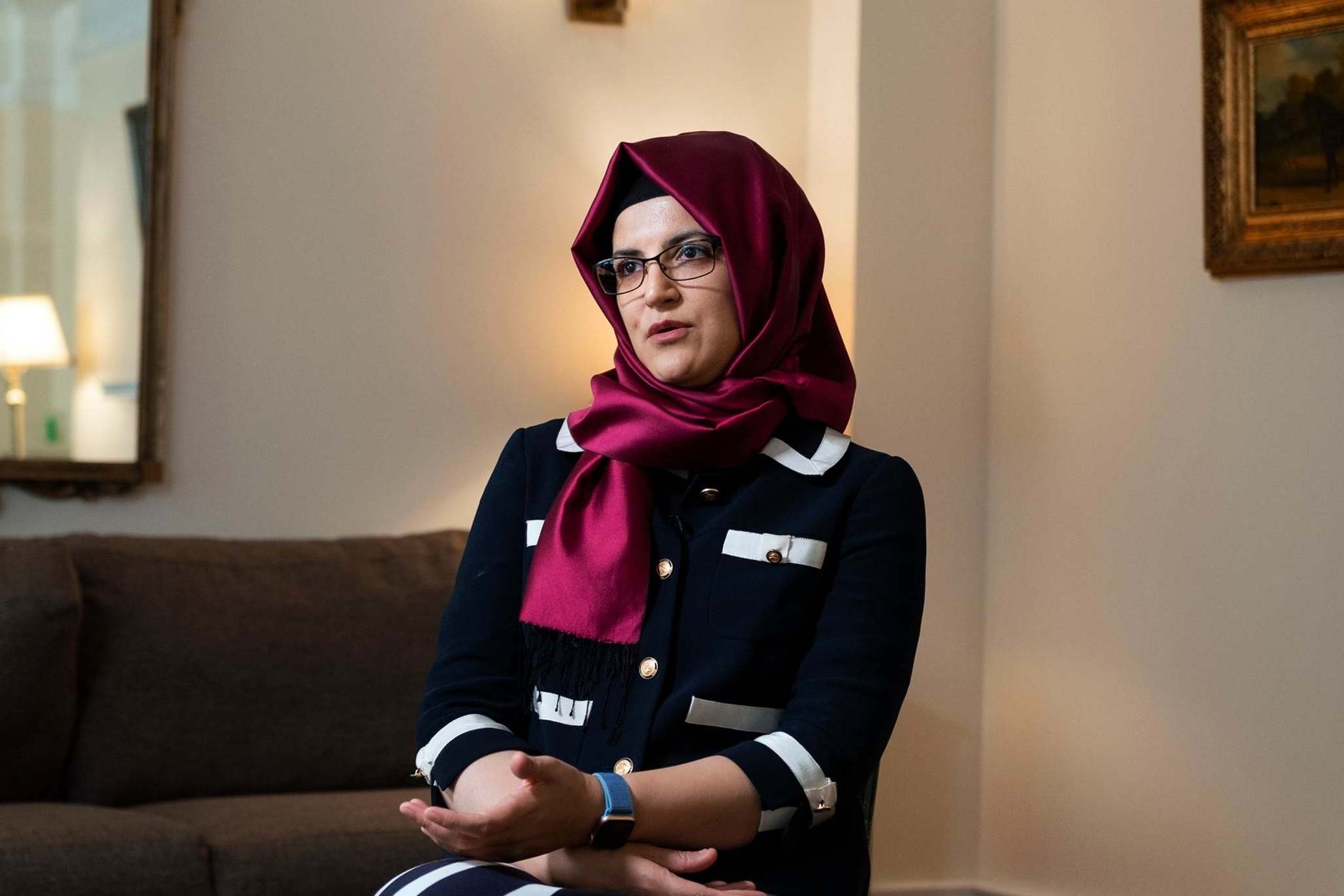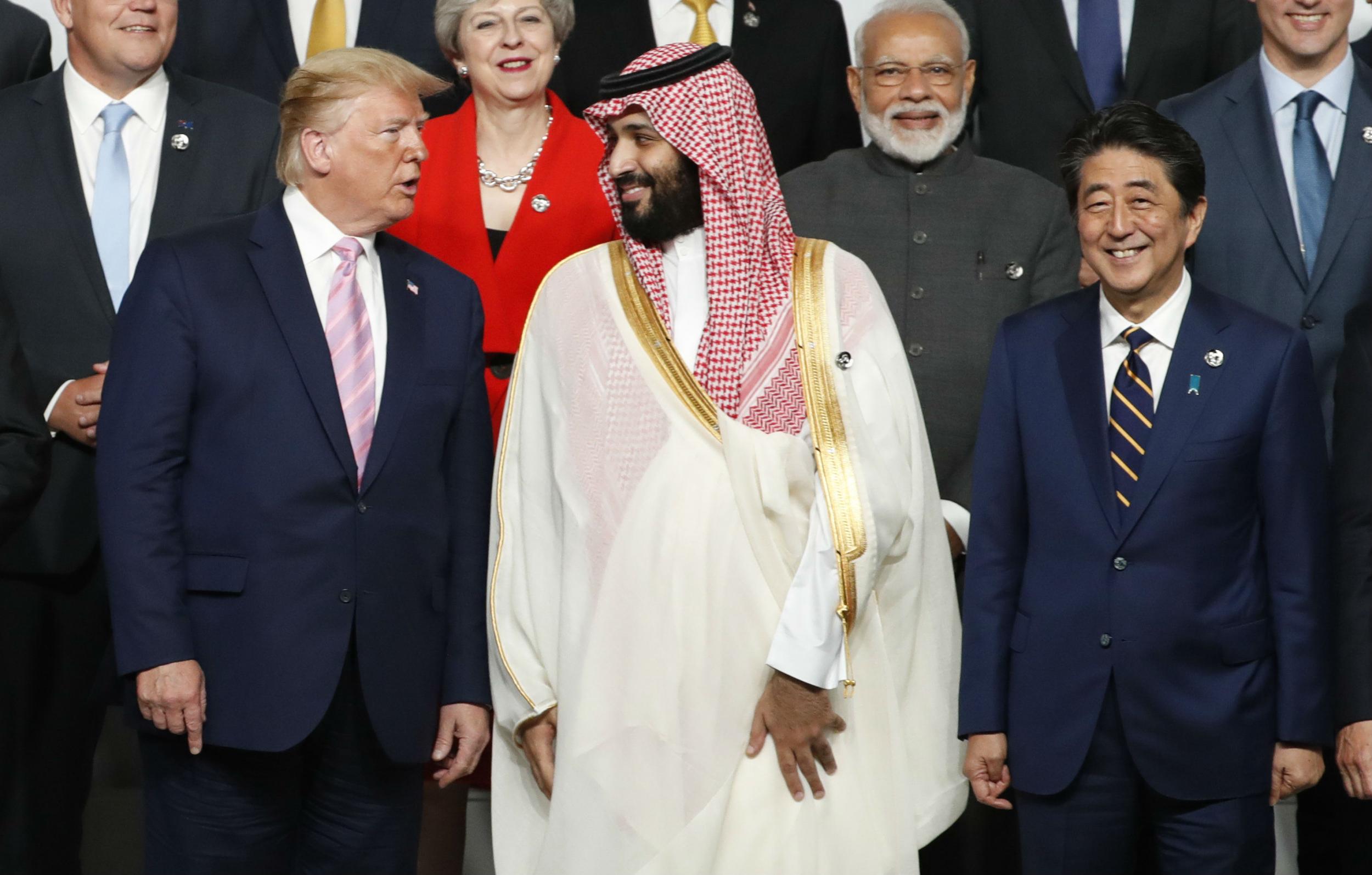‘I have a huge responsibility’: One year after his murder, Jamal Khashoggi’s fiancee carries his flame
Richard Hall speaks to Hatice Cengiz, who says there has been no accountability for her fiance’s killers

Your support helps us to tell the story
From reproductive rights to climate change to Big Tech, The Independent is on the ground when the story is developing. Whether it's investigating the financials of Elon Musk's pro-Trump PAC or producing our latest documentary, 'The A Word', which shines a light on the American women fighting for reproductive rights, we know how important it is to parse out the facts from the messaging.
At such a critical moment in US history, we need reporters on the ground. Your donation allows us to keep sending journalists to speak to both sides of the story.
The Independent is trusted by Americans across the entire political spectrum. And unlike many other quality news outlets, we choose not to lock Americans out of our reporting and analysis with paywalls. We believe quality journalism should be available to everyone, paid for by those who can afford it.
Your support makes all the difference.The fiancee of murdered journalist Jamal Khashoggi has called for the international community to hold his killers accountable, one year on from his death.
In an interview with The Independent, Hatice Cengiz says there has been “no accountability” for the murder, believed to have been ordered by the Saudi crown prince Mohammed bin Salman, because countries feared the economic impact of cutting off ties to Saudi Arabia.
“If this was a test of principles and values, the international community failed that test,” she says.
“It was up to western governments, in particular the US, since he lived in the US and worked for an American newspaper, to take a decisive stance. They stand for democracy and human rights, but we are still waiting for this stance to begin.”
Khashoggi, a Saudi journalist who was critical of his country’s government, was killed on 2 October last year in a planned operation carried out by top aides to the crown prince.
He had gone to the Saudi consulate in Istanbul to collect papers he needed to marry Cengiz. The two had met at a conference in May last year and were planning their lives together.
The Turkish doctoral student said goodbye to him at the gates of the consulate. “See you soon. Wait for me here,” he told her. She waited outside for hours, and even returned the next day. But she would never see him again.
In the days after his disappearance, Saudi officials would deny any knowledge of his whereabouts. The official story shifted as new information was released by Turkish investigators, until eventually the Saudi government claimed the murder was carried out by rogue agents acting independently.
The CIA and some western governments would later come to the conclusion that the crown prince had personally ordered Khashoggi’s killing. The royal has repeatedly denied any involvement.
Eleven people are currently on trial for the killing in Saudi Arabia, but the journalist’s body has never been found.
Over the past year, Cengiz has been relentless in pursuit of the truth about what happened to her partner, and refused to allow his name to disappear from the headlines.
“My life has changed completely,” she says. “I used to lead a simple, modest life, and now I have a huge responsibility, to be the face of Jamal on the international stage, in the media. I had wanted only to be Jamal’s wife, and his companion.”
To this day, Cengiz doesn’t fully understand why the decision was taken to murder her fiance.
“Jamal was not in complete opposition to them, he was from that country and he worked close to them. But he disagreed with them on certain issues, and this angered them; he wrote for an American paper and his voice had a lot of reach. He was a patriotic person and loved his country. He was optimistic about his future,” she says.
“He was not only a journalist, he was a great man, and not only to me. I lost my partner, and Muslims and the world lost a great man.”
In an interview broadcast this weekend, Mohammed bin Salman told CBS’s 60 Minutes that he ultimately bore full responsibility for the killing a year ago, but he denied ordering it.
Despite western intelligence agencies linking the crown prince to Khashoggi’s death, there has been little appetite for any meaningful break in ties with Saudi Arabia. Donald Trump, the US president, described it as the “worst cover-up in history”, but he has insisted Washington’s relationship with the kingdom is too lucrative to dismiss.

The royal will welcome world leaders to Riyadh next year for the G20 summit, an event that will be used by the Saudi government to repair the crown prince’s image.
“It seems that these bilateral, economic relations have taken precedence over humanitarian ones,” says Cengiz.
In her pursuit of justice for her partner’s killing, Cengiz has travelled the world to meet politicians and policy-makers, and spoken at the UN and the US congress.
“We want justice for Jamal, meaning that we want to hold those responsible to account. We are not talking about the whole country, we only want to hold those who were responsible to account. There should be political pressure to find out more about it,” she stresses.
“According to what was said, [the crown prince] was responsible, and he should have to explain what happened. Questions must be put to him, and he has to respond to these questions.
Although Cengiz confesses to being pessimistic, she refuses to give up trying.
“Justice has to be served. Western values, among them human rights, are still alive. These values have to be defended.”
Join our commenting forum
Join thought-provoking conversations, follow other Independent readers and see their replies
Comments